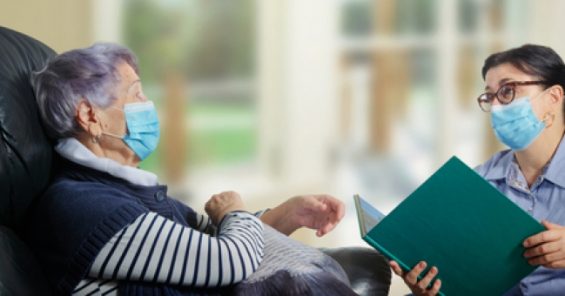New guidance from the World Health Organization (WHO) endorses UNI Global Union calls for sufficient staffing in nursing homes, saying it is ‘critical’ to ensuring infection control and quality care during the COVID-19 pandemic.
In the interim paper, released on 8 January 2021, the WHO recommends that long-term care facilities should “ensure adequate staffing levels and staff organization, appropriate working hours and protection of health workers from occupational risks”.
COVID-19 has had a devasting impact on long-term care facilities – in a survey of 21 countries, an estimated 46 per cent of all COVID-19 deaths were care home residents.
Protection measures for workers should include sick pay and vaccination against COVID-19, while staff, caregivers and residents should be given training on appropriate infection control, and hand and respiratory hygiene.
The use of temporary workers, which is associated with an increased risk of COVID-19 infection, should be limited as much as possible, says the guidance, chiming with UNI’s demands for permanent employment contracts in long-term care facilities.
The WHO also recommends staff co-horting in long-term care facilities as a way of reducing transmission of COVID-19 – meaning that groups of staff work in one section of a facility and do not meet with staff working with residents in another area.
UNI which through UNICARE represents two million social care and long-term care workers worldwide, is calling for a shield of measures to protect care workers against COVID-19.
Adrian Durtschi, Head of UNICARE, said:
“One of the best ways to implement and monitor the WHO guidelines is to give workers a voice. Research shows a direct correlation between unionization and a reduction in COVID-19 transmission rates and deaths. Unionized nursing homes are safer because workers have the ability to bargain collectively for permanent contracts, sick pay and adequate staffing.”



